
The New Zealand national rugby union team, commonly known as the All Blacks, represents New Zealand in men's international rugby union, which is considered the country's national sport. Famed for their international success, the All Blacks have often been regarded as one of the most successful sports teams in history.

David Gallaher was an Irish-born New Zealand rugby union footballer best remembered as the captain of the "Original All Blacks"—the 1905–06 New Zealand national team, the first representative New Zealand side to tour the British Isles. Under Gallaher's leadership the Originals won 34 out of 35 matches over the course of tour, including legs in France and North America; the New Zealanders scored 976 points and conceded only 59. Before returning home he co-wrote the classic rugby text The Complete Rugby Footballer with his vice-captain Billy Stead. Gallaher retired as a player after the 1905–06 tour and took up coaching and selecting; he was a selector for both Auckland and New Zealand for most of the following decade.
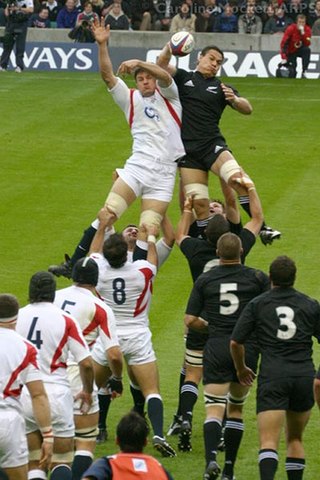
Rugby union has been played in New Zealand since 1870 and is the most popular sport in the country as well as being its national sport.

The 1888–89 New Zealand Native football team was a New Zealand rugby union team that toured Britain, Ireland, Australia and New Zealand in 1888 and 1889. It mostly comprised players of Māori ancestry, but also included some Pākehā. A wholly private endeavour, the tour was not under the auspices of any official rugby authority; it was organised by New Zealand international player Joseph Warbrick, promoted by public servant Thomas Eyton, and managed by James Scott, a publican. The Natives were the first New Zealand team to perform a haka, and also the first to wear all black. They played 107 rugby matches during the tour, as well as a small number of Victorian Rules football matches in Australia. Having made a significant impact on the development of New Zealand rugby, the Natives were inducted into the World Rugby Hall of Fame in 2008.
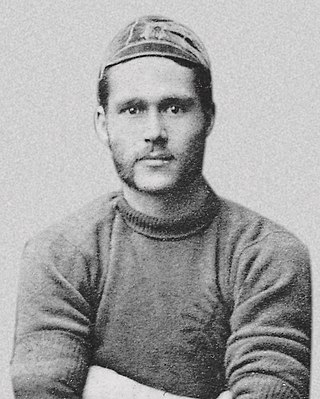
Joseph Astbury Warbrick was a Māori rugby union player who represented New Zealand on their 1884 tour to Australia and later captained the 1888–89 New Zealand Native football team that embarked on a 107-match tour of New Zealand, Australia, and the British Isles.

Thomas Rangiwahia Ellison, also known as Tamati Erihana, was a New Zealand rugby union player and lawyer. He led the first New Zealand representative rugby team organised by the New Zealand Rugby Football Union (NZRFU) on their 1893 tour of Australia. Ellison also played in the 1888–89 New Zealand Native football team on their epic 107-match tour, scoring 113 points, and 43 tries with the side.
The Auckland rugby league team is the team which traditionally represents all of the clubs which play in the Auckland Rugby League competition. As well as a senior men's team there are also Auckland representative teams throughout the various age groups such as under 15s, under 17s, under 19s and under 21s.

Vincent David Bevan was a New Zealand rugby union player.
Munster Rugby has a strong tradition of competitiveness against touring rugby teams. They have played the All Blacks, the national team of New Zealand, 8 times since 1905. In 1978, they became the first Irish team, including the Irish national team, to win a match in the history of competition between the countries, and remained the only Irish team to beat the All Blacks until the Irish national team defeated New Zealand in November 2016.
Stephen Jeffery "Dick" Uluave is a former rugby league footballer who represented both New Zealand and Tonga at international level.
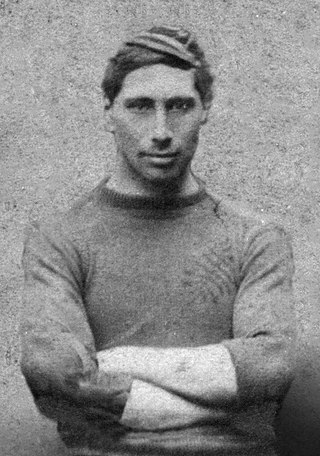
John Grey Taiaroa, of Ngāi Tahu descent, was a New Zealand rugby union player. A halfback, he played nine matches for New Zealand in 1884—the warm-up in Wellington and all eight matches of the tour of New South Wales; New Zealand won all eight games. There were no test matches on the tour, as Australia did not play their first test match until 1899. Taiaroa was the highest try scorer of the tour.

Patrick Keogh, also known as Pat Keogh or Paddy Keogh, was a New Zealand rugby union footballer who toured with the 1888–89 New Zealand Native football team. Playing at half-back, Keogh was considered the star player on the tour, which was the first by a Southern Hemisphere team to the British Isles. He played in at least 70 of the team's 107 matches in the British Isles, Australia and New Zealand. After playing for Dunedin club Kaikorai from 1884, he was selected to represent his province of Otago from 1887, and played for them against the touring British Isles team in 1888. By this time Keogh had established himself as the outstanding half-back in New Zealand, and he was approached by Joe Warbrick to tour with the Native team in mid-1888.

Keith Davis was a New Zealand rugby union player who played for both New Zealand and New Zealand Māori. He played for Auckland, and won the Ranfurly Shield in his first ever provincial game. After gaining All Blacks selection in 1952, Davis toured with the team to Europe and North America in 1953–54. He played extensively for New Zealand Māori between 1952 and his retirement in 1959; his time with the team included matches against both South Africa and the British Lions. Davis was awarded the Tom French Cup for Māori player of the year in 1952, 1953 and 1954.

David Richmond Gage was a New Zealand rugby union footballer. He played with the 1888–89 New Zealand Native football team, and represented New Zealand in 1893, and once in 1896 when he captained the side.
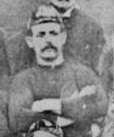
George Albert Williams, also known as Bully Williams, was a New Zealand rugby union player who toured with the 1888–89 New Zealand Native football team to the British Isles and Australia. Williams was one of five non-Māori players in the Natives' side.

William Cunningham was a New Zealand rugby union player who represented New Zealand—known as the All Blacks—between 1901 and 1908. Most notably he toured with the Original All Blacks on their 1905–06 tour of the British Isles, France and North America. They were the first New Zealand representative team to visit the British Isles, and of their 32 matches there Cunningham played in 23. He played mainly at lock, and was added to the touring party due to his strong scrummaging ability. He played in three Test matches during the trip: against Scotland, Ireland and France, but did not play in the loss to Wales due to injury, the All Blacks' only defeat on tour.
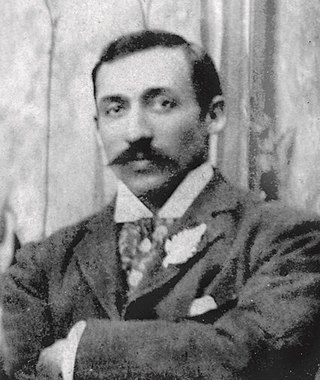
William Thomas "Tabby" Wynyard was a rugby union footballer who toured with the 1888–89 New Zealand Native football team and the 1893 New Zealand team. He also played first-class cricket for both Wellington and Auckland.
Frederick Warbrick was a rugby union footballer who toured with the 1888–89 New Zealand Native football team on their tour of the British Isles, New Zealand, and Australia. The Natives tour was captained and organised by Fred Warbrick's brother Joe, who had played with the New Zealand team on their 1884 tour of New South Wales. Joe Warbrick eventually selected 26 players for the team, which consisted mostly of Māori or part-Māori, but also several European "Pakeha". Along with Joe and Fred there were three other Warbrick brothers in the side: Alfred, Arthur, and Billy.

William "Mother" Elliot , also known as Bill, was a New Zealand rugby union footballer who toured with the 1888–89 New Zealand Native football team. Elliot was one of five Pākehā (European) players in the predominantly Māori team, and his addition strengthened the side. Playing at half-back, he became one of the most prolific players on the tour, and appeared in at least 86 of their 107 matches in the British Isles, Australia and New Zealand. While on tour he played in all three of the internationals against England, Ireland, and Wales. When he returned from the tour he continued to play provincial rugby for Auckland, whom he represented from 1887 to 1896. Before he departed with the Natives he had twice represented Auckland against the touring British side, and had scored a try against them in the second match, a 4–0 victory for Auckland. He was initially selected for New Zealand for their 1893 tour of Australia, but was unable to secure leave from work.















